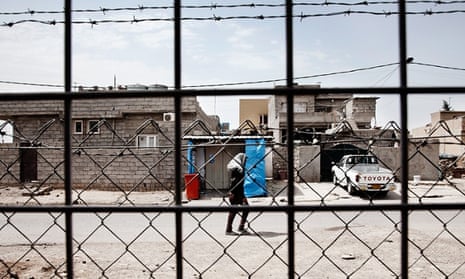With nearly four million Syrian refugees in Lebanon, Turkey, Jordan and Iraq, a heavy toll has been placed on local populations. Basic infrastructure, including schools, hospitals and water supplies, has been placed under enormous strain.
But despite the pressures, many local communities have stepped in to help new arrivals. Refugees have also banded together to support each other. To mark World Refugee Day, the European commission’s humanitarian aid and civil protection department (Echo) has partnered with the Danish Refugee Council to pay tribute to the everyday heroes supporting Syrian refugees.
“There is a lot of media coverage highlighting the negative impact of the crisis on the refugee-hosting countries, but there are also many positive stories that never get reported,” says David Verboom, Echo’s regional head of office in Amman, Jordan. “This is an attempt to redress the balance a little, to shine some light on the generosity and friendship shown towards the refugees, and vice versa, that often goes unnoticed.”
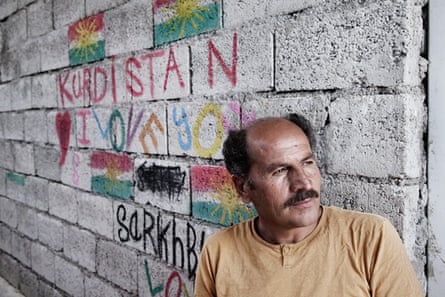
Ahmad Khalif, 42, father of six from Al-Hasakah, Syria, now living in Darashakran refugee camp, Iraq
Khalif fled Syria in August 2013 with his wife and six children, taking nothing but the clothes they were wearing. The quietly spoken 42-year-old now lives in Darashakran refugee camp, where he has become a father figure, helping more than 300 families access clothes, food and medicine.
“They come here with nothing. [Just] the clothes on their back. Many have not eaten for days and they are scared. The children cry a lot,” Khalif says. “You become aware of those that are really struggling, so I make calls and talk to people and we share what we have. We don’t make a fuss. We leave the clothing, food or blankets at night so it can be found in the morning.
“We may not have much, but what we do have we share. Are we not called humans, after all?”
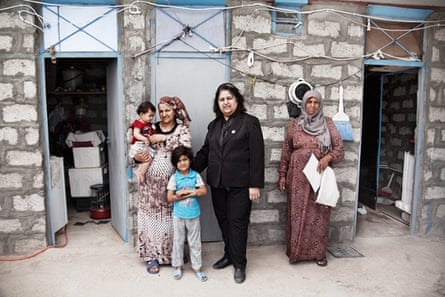
Jawan Rafiq Fathullu, 38, district mayor of Darashakran, Iraq
“It is not good enough to give a tent and leave them. We must ensure we offer dignity too,” says Fathullu, one of the few female mayors in Iraq. She aims to offer a personal welcome to each refugee who arrives in the district, and has overseen the construction of Darashakran camp, home to 11,000 Syrian refugees.
She says the camp has reliable electricity, water and sanitation facilities, as well as green areas for children to play and families to meet. “Our door here is always open because we, like our brothers and sisters in Syria, are humanitarian people who look after one another. From one human to the next, I offer my support. I want them to feel secure.”
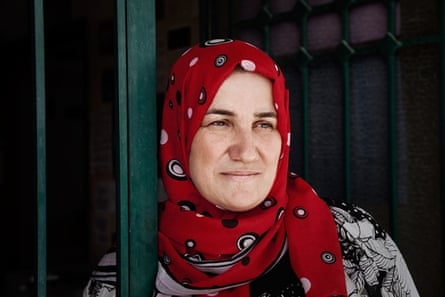
Marian Dirani, women’s resource centre director, Qsarnaba, Lebanon
Dirani is the director of one of the few women’s resource centres for Syrian refugees in Lebanon’s Bekaa Valley.
“The stories I have heard from women I work with are often unbelievably heartbreaking. But at the same time, day by day, I see their strength grow, their heads rise and strength building as they learn new skills that help empower them,” Dirani says.
More than half of the 400,000 refugees from Syria living in the Bekaa Valley are women and children.
“Most days women just sit in their homes, cook, clean and worry about how they will be able to provide a good future for their children. Some women have been abandoned by husbands who take on younger, second wives. They struggle and even push their daughters into early marriage or pull their children out of school so they can work and earn money,” Dirani says.
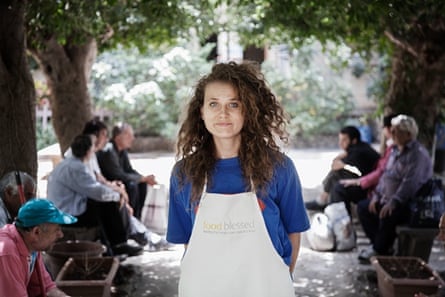
Maya Terro, 29, Foodblessed co-founder and director, Beirut, Lebanon
With food donated by local restaurants and food manufacturing companies, Terro runs a street feeding programme for refugees in Beirut. In the three years since the project began, Foodblessed has provided more than 190,000 meals to vulnerable people including Syrian families.
Terro leads a growing team of more than 400 volunteers who make and distribute meals from food that would have otherwise ended up as waste. “I used to think that people didn’t care, but I’ve found out that people just didn’t know how,” she says.
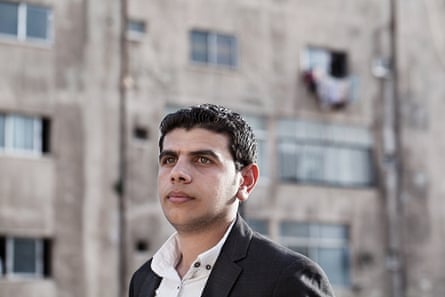
Ahmad Abu Hamad, 24, Radio Al Balad journalist, Amman, Jordan
Journalist Ahmad Abu Hamad is a Palestinian refugee who grew up in Jordan’s Madaba refugee camp. Having experienced life as a new arrival, he says his aim is to bring humanity into the conversation on refugees.
“There is a misconception that people believe a refugee has no responsibilities. But to become a refugee, that person has had only three options to choose from – to be killed, to be imprisoned or to become a refugee. It is that simple.
“Last week I interviewed a 20-year-old refugee girl. When we spoke I looked at her and thought, ‘What has she done? No home, alone. A refugee because of what?’”
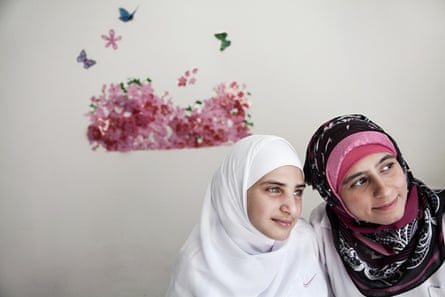
Deema Yaseen, 30, volunteer physiotherapist with Souriyat Across Borders, Amman, Jordan
Many things have changed for 13-year-old Salam Al Jundi in the past 15 months, among them being able to smile and walk.
In March 2014 the young Syrian was walking with her young brother and cousin to a shop near her home to buy sweets when a bomb struck their path. Her cousin died, her brother was injured and Salam lost her leg.
With no treatment available near their home, her parents took the chance and sent Salam and her eight-year-old brother to Souriyat Across Borders, a medical centre in Jordan offering free treatment to Syrian refugees.
“These kids do not only need treatment but also love and encouragement. Their disability is a mark in their mind and a lot of them lose faith in a brighter future,” says Yaseen, a volunteer physiotherapist. “I always ask them, ‘Do you need your legs or head to think and attend school?’ That way I encourage them to believe that they can study and achieve their dreams.”
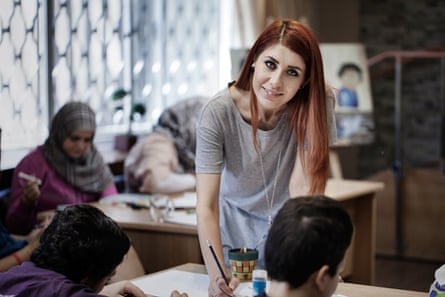
Hala Abu Said, 26, children’s art therapy centre volunteer, Al Badr, Amman, Jordan
More than half of the Syrian refugee population are children, and agencies are working to provide psychosocial support for children, both in refugee camps and host communities. One form of support is art therapy, which aims to help children express themselves and share stories with others who have had similar experiences.
Artist Hala Abu Said, a Syrian refugee herself, says she hopes she can make a small difference in the lives of the children she works with. “This is the best gift I can give the kids as an artist. Every person has something to help Syrians, regardless of their nationality.”
